Fuel Pump Replacement Costs in 2025 – Parts & Labor Reviewed
-
Pete Ortiz
- Last updated:
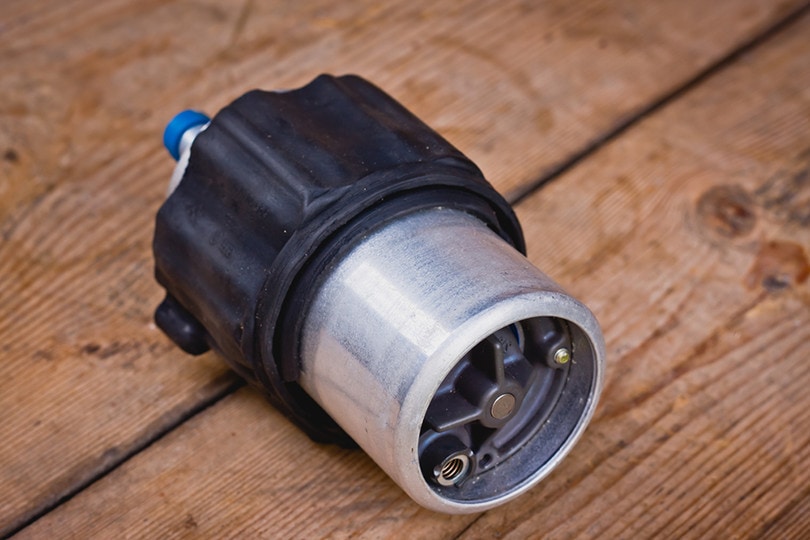
Do you want to know the average cost of replacing a fuel pump this year? If so, you’ve come to the right place. Fuel pumps fail from time to time. If you are lucky, it can happen on the way to a gas station or near a mechanic who can fix it.
A fuel pump is an integral part of a car’s engine. It aids the delivery of fuel from a tank to the engine’s combustion chamber. Fuel pumps are crucial for powering your vehicle. Usually, neglecting a broken fuel pump can get you stuck in the middle of nowhere.
So, when a fuel pump fails, it’s crucial to find out how much it costs to replace it.
Importance of Replacing a Fuel Pump
Before we look at the replacement cost of a fuel pump, here are the reasons you should replace it.
1. It keeps the spark plugs in working order
Gasoline is delivered to the spark plugs via the fuel pump. The spark plugs won’t ignite and start your engine without this gas. The longer you let this issue persist, the more damage you are doing to the spark plug.
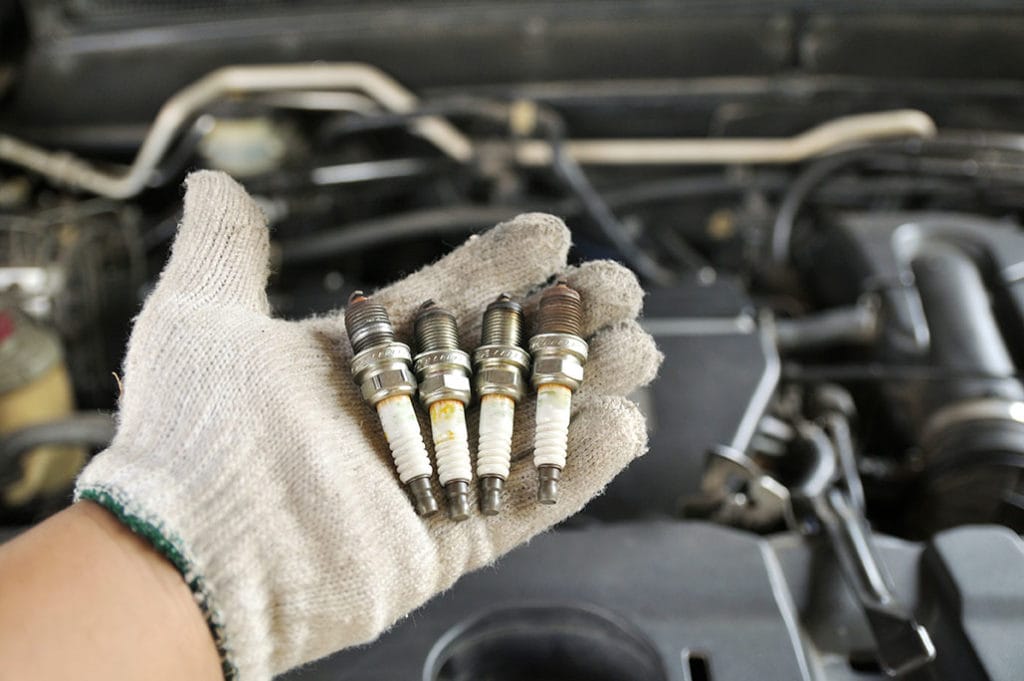
2. It makes the vehicle efficient even under stress
A defective fuel pump will lead to poor performance, hindering the vehicle from running at peak efficiency. Installing a new one will ensure that your car performs efficiently even under stress and pressure.
3. It ensures the engine remains cool
The fuel pump keeps your engine cool. A damaged fuel pump means that the car’s performance will be affected. Also, there will be a reduced mileage rate.
The fuel pump provides an adequate level of fuel to the engine. The car also runs smoothly. It results in fewer repairs because you have prevented damage from occurring to other parts of the vehicle.
What Is the Average Cost of Replacing a Fuel Pump?
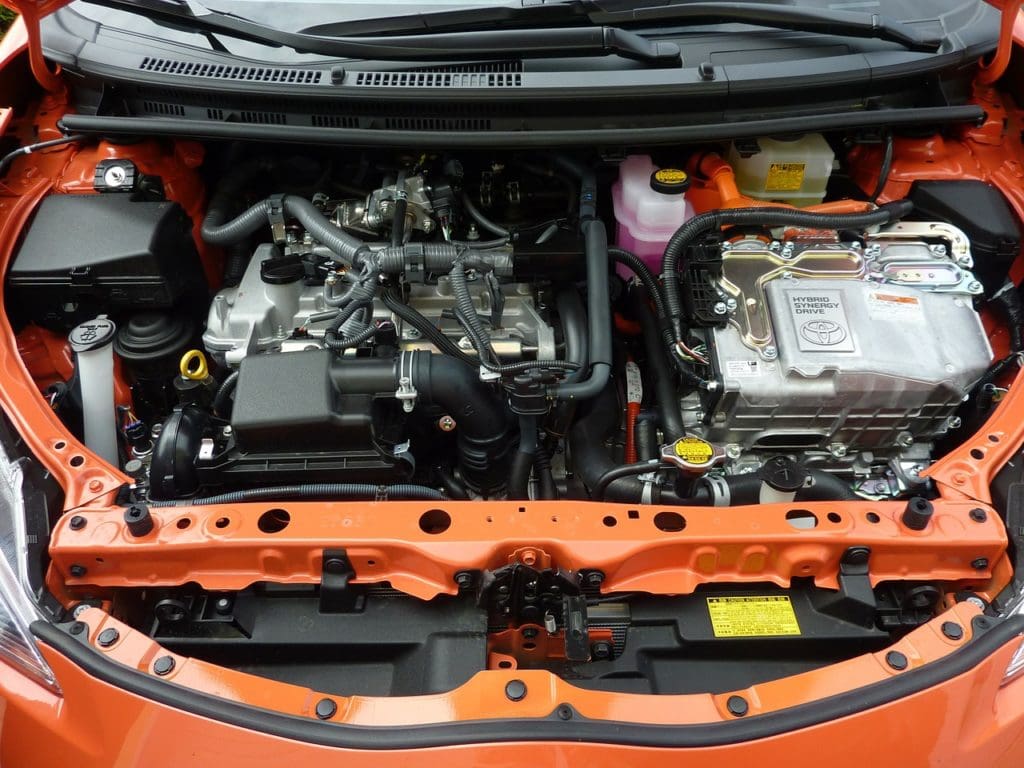
Many factors can sway the price of fuel tank replacement. We’ll discuss them later in this guide.
The average cost of replacing a fuel pump is between $400 and $800. However, this depends on the make and model of the vehicle.
The labor cost is anywhere between $124 and $260. This depends on how challenging it is to access the tank. Note that these costs don’t include taxes or fees.
Here’s a breakdown of the cost of replacing a fuel tank in the 10 most used vehicles.
| Vehicle | Fuel Pump Cost | Labor Charges |
| Ford F150 | $71 to $676 | $133 to $256 |
| Ford Ranger | $65 to $601 | $157 to $216 |
| Toyota Camry | $174 to $796 | $118 to $197 |
| Dodge RAM 1500 | $229 to $698 | $154 to $222 |
| Audi A4 | $297 to $1,114 | $204 to $292 |
| Toyota Rav4 | $186 to $803 | $216 to $292 |
| Ford Focus | $162 to $606 | $123 to $281 |
| Nissan Altima | $107 to $722 | $73 to $105 |
| Ford Transit | $250 to $796 | $171 to $236 |
| Pontiac G6 | $415 to $721 | $176 to $302 |
What Factors Influence Fuel Pump Replacement Cost?
1. The Fuel Pump Brand
The brand of the fuel pump you choose has a significant impact on its replacement cost. Usually, aftermarket brands are less expensive than name-brand components. But make sure you choose a quality option that will last as long as possible.
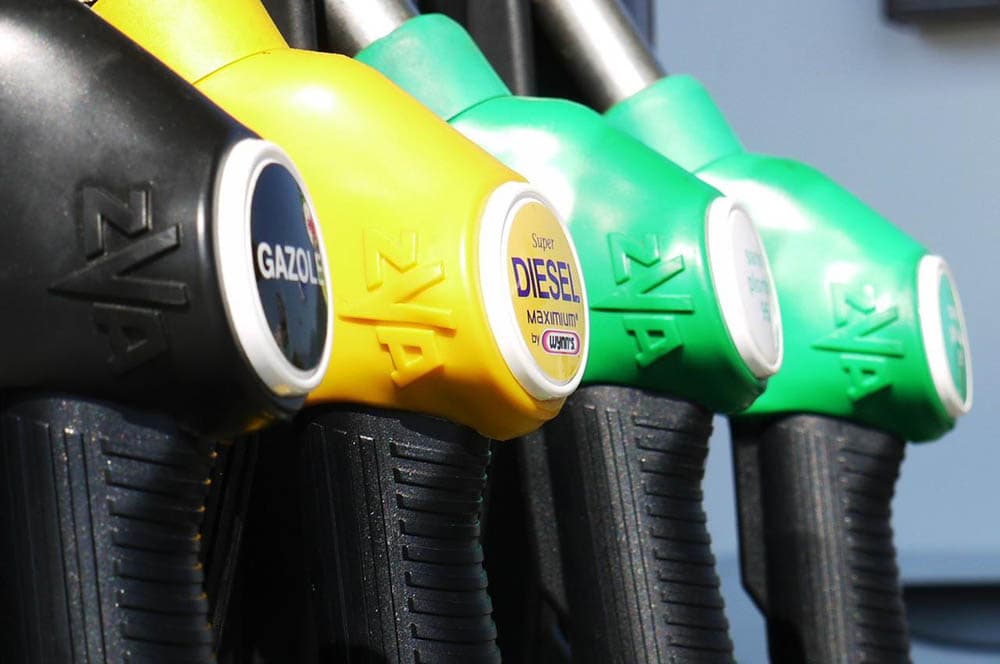
2. Make and Model of the Car
Fuel pumps are found inside the fuel tank, so the cost to replace them will depend on how challenging it is for mechanics to get to them. In some vehicles, mechanics must remove the bed of the truck or entire backseats to access the fuel tank. It increases labor costs.
The type of fuel pump used in your vehicle also affects the overall replacement cost. If a vehicle has a high-pressure fuel pump located inside the engine bay, expect to spend more for this replacement. It’s because it requires extra parts and labor time.
3. Mechanic’s Rate
As you may have already guessed, a mechanic’s hourly rate will factor into the final cost of replacing your fuel pump. Remember that top-notch mechanics aren’t cheap, but they know what they’re doing.
If you want a quality job done, it might be worth spending more money. But if your budget is tight, it might be worth asking around for recommendations for good mechanics at reasonable prices.
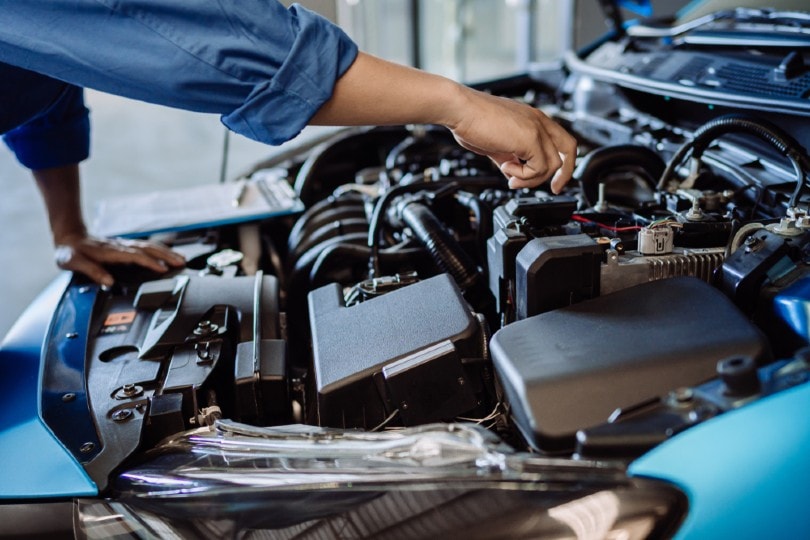
4. Age of the Car
Your car’s age plays a role in the cost of fuel pump replacement. Older cars are more likely to require replacement parts. So, the labor and parts costs will be higher than for a newer car.
How Often Should You Replace A Fuel Pump?
Fuel pumps are not designed to last the vehicle’s lifespan. Besides, most vehicle manufacturers set their replacement intervals at about 100,000 miles. Of course, this is an average. So, your vehicle may have a fuel pump that lasts longer than this or one that needs replacement sooner.
The frequency of fuel pump replacement varies depending on the type of fuel pump1. If your vehicle has a mechanical pump, you may never have to replace it. Mechanical pumps are mostly used in older cars and they run off the timing chain or belt. They are durable and can last long, but not longer than the engine itself.
On the other hand, electric pumps are commonly found in cars that have carburetors. You can also find them on newer vehicles with electronic fuel injection (EFI). Electric pumps are more prone to failure. It’s because they are constantly running when the key is on.
 What Are the Symptoms of a Bad Fuel Pump?
What Are the Symptoms of a Bad Fuel Pump?
Do you smell gas? Do you hear a hissing sound? If so, you may have a bad fuel pump. Here are more signs of a bad fuel pump:
1. The car is unable to maintain speed
When you’re driving down the road, the fuel pump is working to keep a steady amount of gas moving through the engine. This pumping action may become inconsistent. It can make the car jerk or hesitate at random points in time. A faulty fuel pump can cause this. Replace it as soon as possible.
2. Overheating
Overheating is a common symptom of a bad fuel pump. When the fuel pump isn’t pumping enough fuel into the engine, it can make it overheat. It’s because it isn’t receiving enough gasoline. So, it will run too hot.
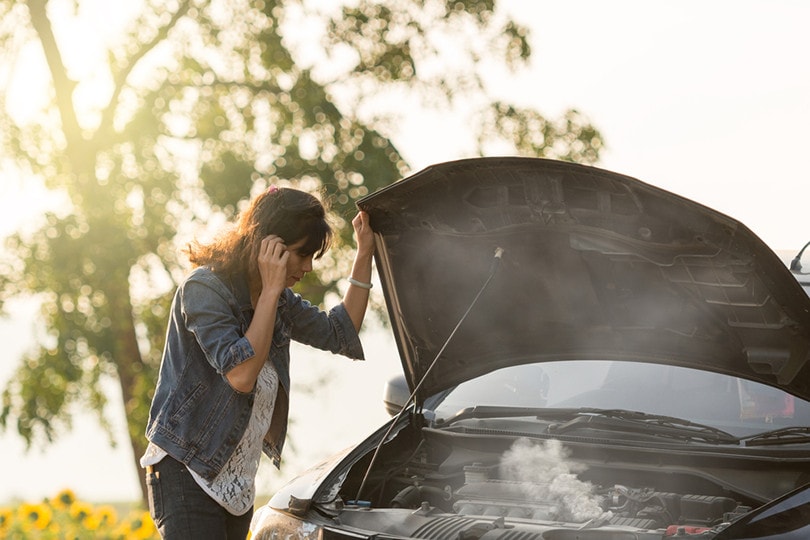
3. Unusually high gas usage
When your fuel pump is failing, it can’t deliver enough gasoline to the engine as fast as it needs it, especially under load.
If you notice an unusually high gas usage on your vehicle, you may have a bad fuel pump. A bad fuel pump can use up more gas than usual as it works hard to get the gas to where it needs to go in the vehicle. It can lead to lower gas mileage.
4. Trouble starting the car
One of the most common signs in your car’s fuel pump is trouble starting. It will take several tries before your vehicle finally starts.
It can be frustrating when it occurs in the middle of rush hour traffic. If you are experiencing this issue, get your car checked out by a mechanic as soon as possible to prevent further damage.
5. Makes a lot of noise
If you hear a lot of noise coming from your vehicle, it’s a sign that something is wrong with the fuel pump. When the fuel pump starts to go bad, you may be able to hear it as an annoying whine or squeal.
As the fuel pump starts failing, the noise will become more intense. Don’t wait to get your vehicle checked out as soon as you notice any abnormal sounds coming from under the hood.
6. Check engine lights come on
One sign of a potential problem with a fuel pump is an illuminated check engine light. Check engine lights often come on for minor issues, including loose gas caps. But if the problem does not resolve itself within a short time, it’s likely there’s something more serious.
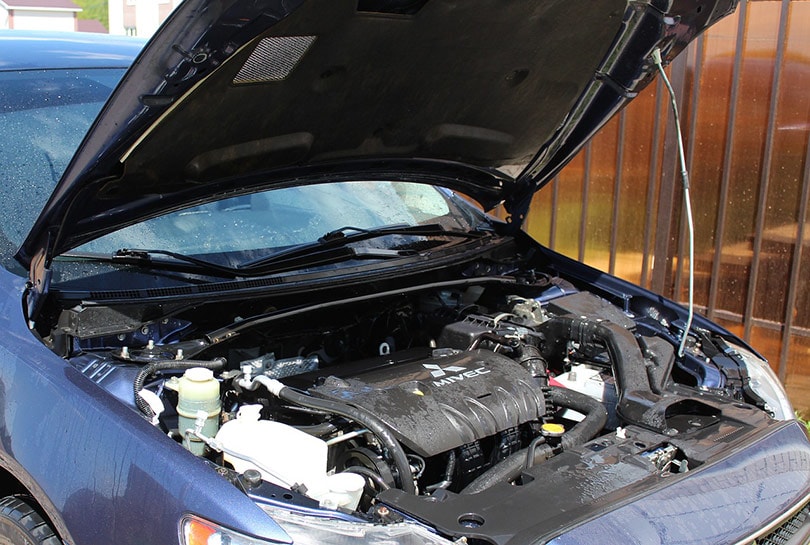
Does Car Insurance Cover Fuel Pump Replacement?
Fuel pumps may fail and need to be replaced. The replacement costs can add up fast. Car insurance coverage is a critical component of auto maintenance.
It’s crucial to know whether your car insurance will cover fuel pump replacement. The good news is that comprehensive car insurance covers fuel pump failure.
But not every policy includes comprehensive coverage. Whether your car insurance will cover fuel pump replacement depends on the type of policy.
 Conclusion
Conclusion
Always be upfront with your mechanic about the specifics of a job before agreeing to any fuel pump replacement work. If you don’t know what kind of work will be needed, have a technician examine the vehicle and assess the situation for you.
Now that you know more about the cost of replacing a fuel pump, it will be easier to plan your expenses well. At least now you’ll know what to expect when you take your vehicle in for repairs.
Featured Image Credit: Auhustsinovich, Shutterstock
Contents


